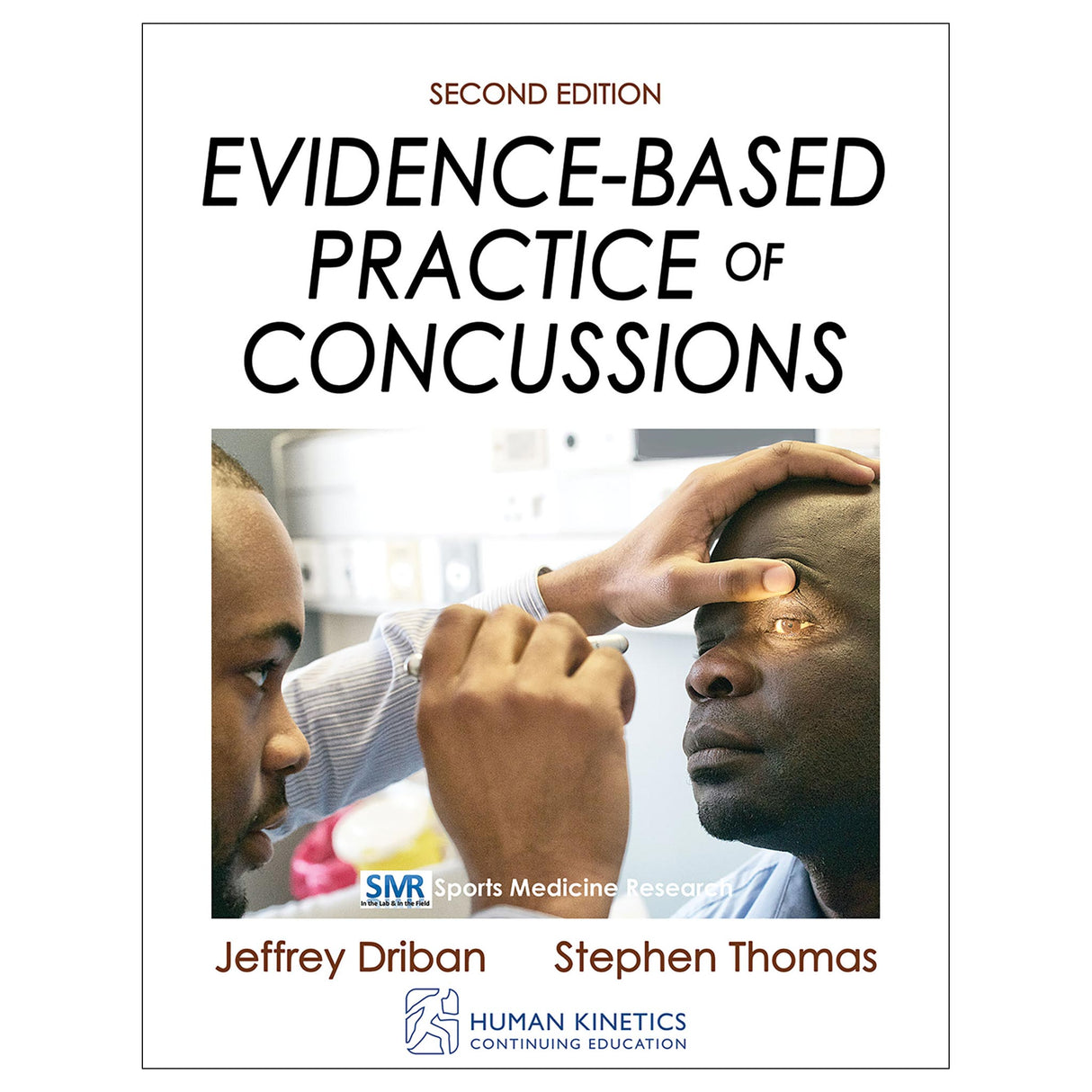Evidence-Based Practice of Concussions 2nd Edition Online CE Course
Author: Jeffrey Driban, Stephen Thomas
$104.95 CAD
Human Kinetics strongly recommends that you complete your exam within the calendar year of your date of purchase to ensure approved credits do not expire for your organization.
- 20 online articles from Sports Medicine Research
- Online continuing education exam
This course supports the initiative in the athletic training profession to integrate the best new research and evidence into clinical decision making with the goal of improving patient outcomes.
Once you complete the readings and pass the 100-question exam, you can print a certificate for continuing education credits.
Learning Objectives
- Explain what factors are related to a delayed recovery after a concussion.
- Explain the consequences of a concussion that may linger after symptoms resolve, such as elevated risk of lower extremity injury and impaired driving.
- Be able to efficiently implement prevention programs that reduce the risk of head impacts and concussions in contact sports.
- Be able to efficiently implement a concussion assessment protocol and account for extraneous factors that may bias assessment results.
- Be able to discuss with patients their options for treating concussion symptoms.
Audience
Certified athletic trainers and therapists, coaches, physicians, and medical technicians.Article 2. If the Helmet Doesn’t Fit, You May Have to Sit (Out Longer With a Concussion)
Article 3. A Delay Today With Removal for Play May Lead to a Delay in Return to Play
Article 4. Save Your Brain Now So You Can Play Later
Article 5. Concussed Athletes Face High Odds of Lower Extremity Injuries After Return to Play
Article 6. DWC: Driving While Concussed
Article 7. The Diagnostic Value of a Concussion Assessment Tool and Its Individual Components
Article 8. A Good Night’s Sleep Could Go a Long Way With Neurocognitive Performance
Article 9. Not Catching Enough Z’s Could Worsen Concussion Symptoms
Article 10. ADHD Prescription Treatment Needs to Be Considered When Assessing and Treating Athletes for Concussion
Article 11. See All About It! New Set of Tests to Add to the Concussion Assessment Protocol
Article 12. Differences in Symptom Reporting Between Male and Female Athletes Before and After a Concussion
Article 13. Injury Prevention Programs May Work if Your Athletes Use Them Regularly
Article 14. Physical Activity Within 7 Days May Lead to Better Long-Term Outcomes After a Concussion
Article 15. No Strict Rest for the Weary or Concussed
Article 16. Attractive Treatment Option for Patients Suffering From mTBI-Related Headaches
Article 17. Therapist-Directed Cognitive Rehabilitation Improved Functional Cognitive Outcomes
Article 18. Comprehensive Services Improve Care for Adolescents With Persistent Postconcussive Symptoms
Article 19. Don’t Let Your Concussed Athletes Spin out of Control; PT Is Feasible!
Article 20. Helmetless Tackling Promotes Better Tackling Behaviors, Resulting in Fewer Head Impacts





